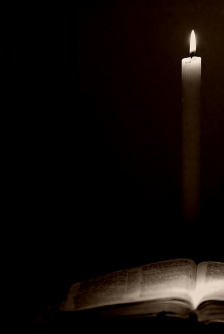August 28 2011: Eleventh Sunday after Pentecost
Exodus 3:1-15
Psalm 105:1-6, 23-26, 45c
or
Jeremiah 15:15-21
Psalm 26:1-8
To take up our cross and follow Jesus is not our natural inclination as humans; most of us, if we are honest with ourselves, moan and groan and complain a lot at what we perceive as our crosses.
Jesus had set his face toward Jerusalem where he probably figured he was going to die. Did he know he would die on a cross? That was the form of torture the Romans used for criminals. Or could the insertion of the word “cross” have come about with the early Christian writers of the gospel, after Jesus’ death and resurrection?
“To take up one’s cross” is more than embracing our sufferings, it means to embrace death. To not run away from it, to accept it as a natural consequence of living. For to be human means to eventually die, an experience none of us have gone through and most of us are afraid of.
There is a line in the liturgical song written by Bernadette Farrell that goes, “Make us know our life’s shortness, that we may gain true wisdom of heart” which is based on Psalm 90: 12. Every once in a while I have the very good fortune of meeting someone who truly understands how short our lives are, and who lives each moment fully. Those kinds of people are a gift to the rest of us.
I continue to grapple with the meaning of Jesus’ death and resurrection, but one possible interpretation of it is this: by his death, Jesus not only fully embraced what it means to be human, as all of us are going to die someday, but he also faced head our greatest fear. To die is to face potential nothingness, to be separated from all we know and love. To die means to face losing the essence of ourselves.
Jesus’ refusal to run away from his certain death (after all, he was a threat to the established order) was an act of infinite trust in his Creator, his Abba whom he loved. Did Jesus truly understand he was going to be raised from the dead? Or could Jesus’ teaching to his disciples that he would be raised on the third day be a comment added by Luke after the fact, after Jesus’ death and resurrection?
A website I consulted on ancient Jewish beliefs about the afterlife said this: “The ancient Hebrews emphasized the importance of the present life over the afterlife. As with both the ancient Greeks and Mesopotamians, the afterlife, if it was considered at all, was conceived of as a pale shadow of earthly life, much like the Greek Hades.” http://www.near-death.com/experiences/judaism06.html
Whether or not Jesus, who was fully human as well as fully divine, really understood that God would raise him from the dead, I do not know. But I do believe that by his life of love and by his gift of self to others, and because of his trust in his Father in the midst of his annihilation, Jesus showed us not only how to live, but how to die.
To be human is to struggle and to suffer, sometimes a lot, sometimes a little. By “taking up our cross” we, like Jesus, are placing our lives and our trust in our Creator, in the God who loves us infinitely and who will never leave us.
